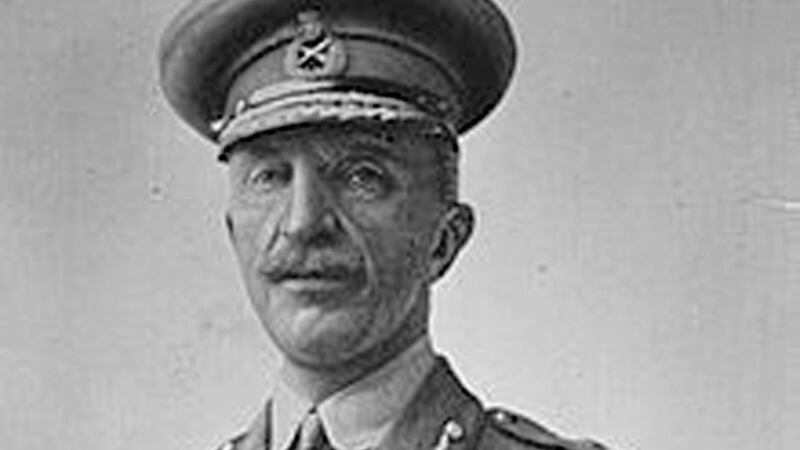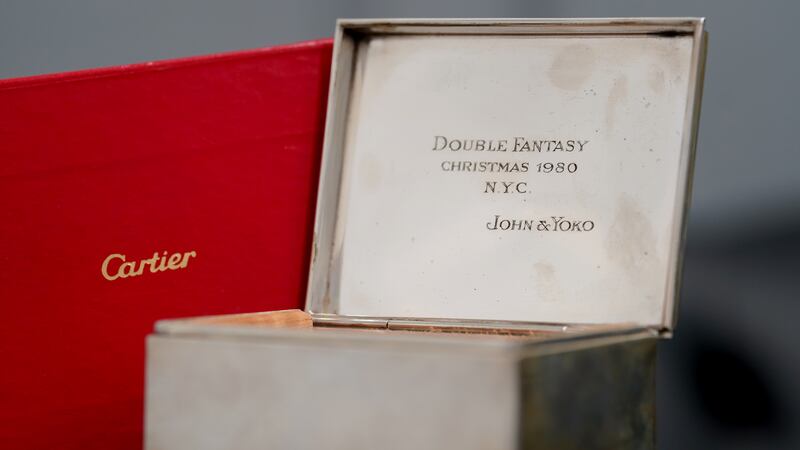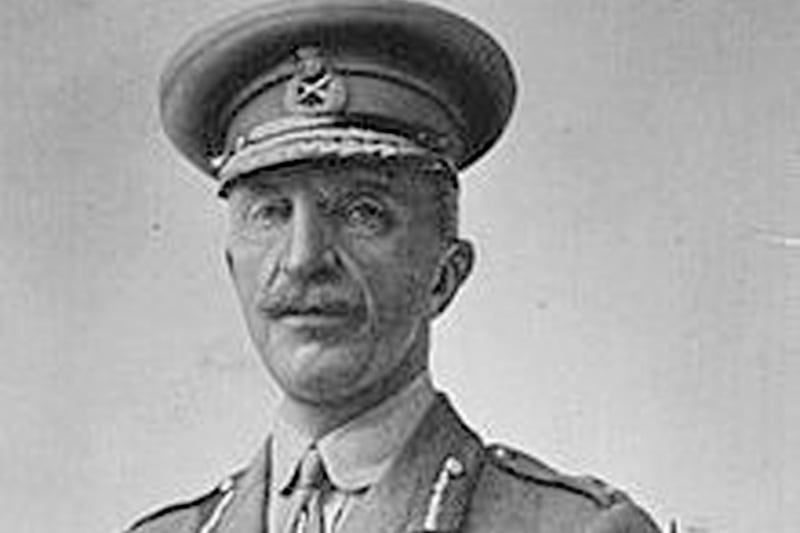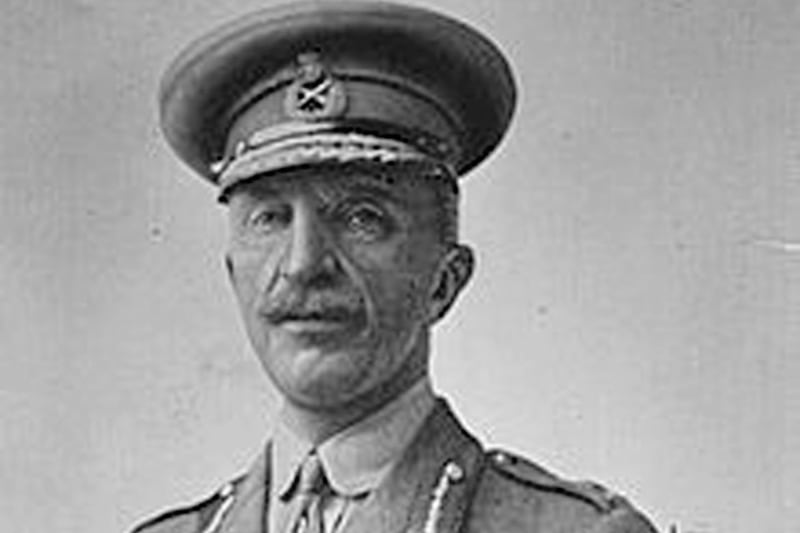ONE hundred years ago today Field Marshal Sir Henry Wilson MP was shot dead on the doorstep of his home at 36 Eaton Place in London, by two disabled veterans of the First World War, Reginald Dunne and Joseph O'Sullivan.
Wilson was an Irish-born (from Longford) British imperialist killed by two British-born Irish nationalists.
Wilson's death was Ireland's Sarajevo. The assassination of the Archduke Franz Ferdinand at Sarajevo on June 28 1914 brought Europe to catastrophe within 37 days.
The Wilson shooting bears the same relationship to the Irish Civil War. Without it, there would have been no British ultimatum to the provisional Irish government, no shelling of the Four Courts, no destruction of the Public Records Office and no Civil War. Michael Collins would have lived and the history of the new Irish state would have been different.
The impact of the Wilson assassination has been underestimated, because of the assumption that the Civil War would have happened anyway and his death only hastened the inevitable.
Yet, as IRA commander Florrie O'Donoghue remembered: "Despite six months of the talk of the possibility of civil war, no one had allowed himself to believe it to be inevitable, and no plans existed on either side for conducting it."
The shots fired by Dunne and O'Sullivan were the first shots of the Civil War, yet ironically they had nothing to with the Treaty split and everything to do with the other civil war going on north of the border, better known as the Belfast pogrom.
Wilson was held responsible by nationalist Ireland for the excesses of British state forces in the north and the imposition of the so-called 'Flogging Act', the Special Powers Act in March 1922 which introduced internment without trial.
Wilson had been the Chief of the Imperial General Staff (CIGS), the professional head of the British army and the chief military advisor to prime minister David Lloyd George in the last year of the First World War.
He had been one of the men who had won the war, according to many of his contemporaries. In June 1919 he was elevated to the rank of Field Marshal, the highest rank in the British army, despite having spent little time at the front.
Yet Wilson became disillusioned with British government policy on Ireland.
He saw the Anglo-Irish Treaty as a sellout to the "murder gang", as he was wont to call the IRA and Sinn Féin.
Where Ireland went so did the Empire, Wilson reasoned. He was not wrong there as time would show, but his blinkered imperialism never allowed him to acknowledge the right to self-determination of other countries let alone his own country Ireland.
He was to the right of both Sir James Craig and Edward Carson on the issue of Ireland. Though both men detested Irish nationalism, they recognised the reality of it. Wilson did not and remarked shortly after the creation of the Irish Free State: "No sane man can imagine that Collins and Co., who none of them ever administered a typewriter, can be expected to keep law and order over three millions of people who have now no sense of either."
In March 1922 Wilson was appointed as military adviser to the Craig government. In his speech in the Northern parliament, Craig said he had put aside £2 million to justify his government's pledge to Wilson to do everything he asked in his advice to them.
Craig declared: "There was no better man to deal with the IRA. I would say if any man can devise means to meet these hordes of IRA and promoters of rebellion, that man is Sir Henry Wilson."
On May 30 1922, Wilson made another one of his inflammatory speeches about Ireland in the House of Commons in front of Michael Collins and Arthur Griffith, who were in the Distinguished Strangers' Gallery: "If serious trouble arises on the frontier between the six counties and the twenty-six counties, I hope that the Government will not restrain the military from crossing the frontier in their own self-defence."
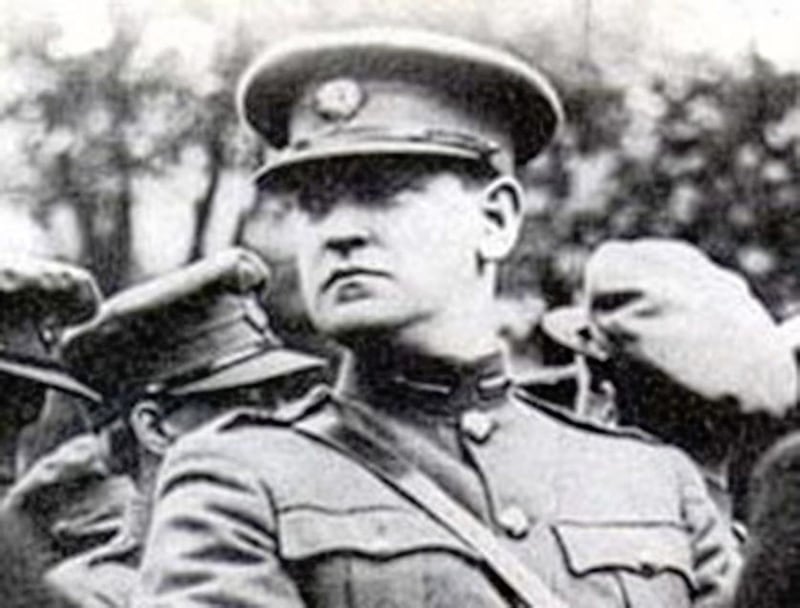
Collins described Wilson as a "violent Orange partisan" He went further in a speech in Wexford in April 1922 saying there were many within British society who did not accept the Treaty. "They want their ascendancy restored," he said. "They want the British back. British diehards and the mischief makers of the Sir Henry Wilson breed are leaving no stone unturned to restore British domination in Ireland."
Yet it was Wilson's attitude to the north rather than the new Irish state which sealed his fate. 1922 was the worst year of the Belfast pogrom. Attacks on Catholics, most notably the Weaver Street, Arnon Street and McMahon family massacres, shocked the world.
As a former head of the British army, Wilson might have used his position to advocate for reconciliation. His grossly irresponsible rhetoric did the opposite.
Privately, he was much less partisan than his public utterances writing in his diary: "The Specials are now all Protestants. The whole of this miserable affair will go straight not only into civil war, but into religious war. It is heart-breaking."
Wilson's good friend General Nevil Macready, the officer commanding British forces in Ireland, remarked that at the time of his death that nationalist Ireland wrongly believed Wilson was "the directing spirit of every activity which resulted in the death of a Catholic".
Yet nobody was more to blame for the public image of Wilson than Wilson himself. He never tried to counter the derogatory things said about him, and his private misgivings about the behaviour of the Specials in the north were just that – private misgivings.
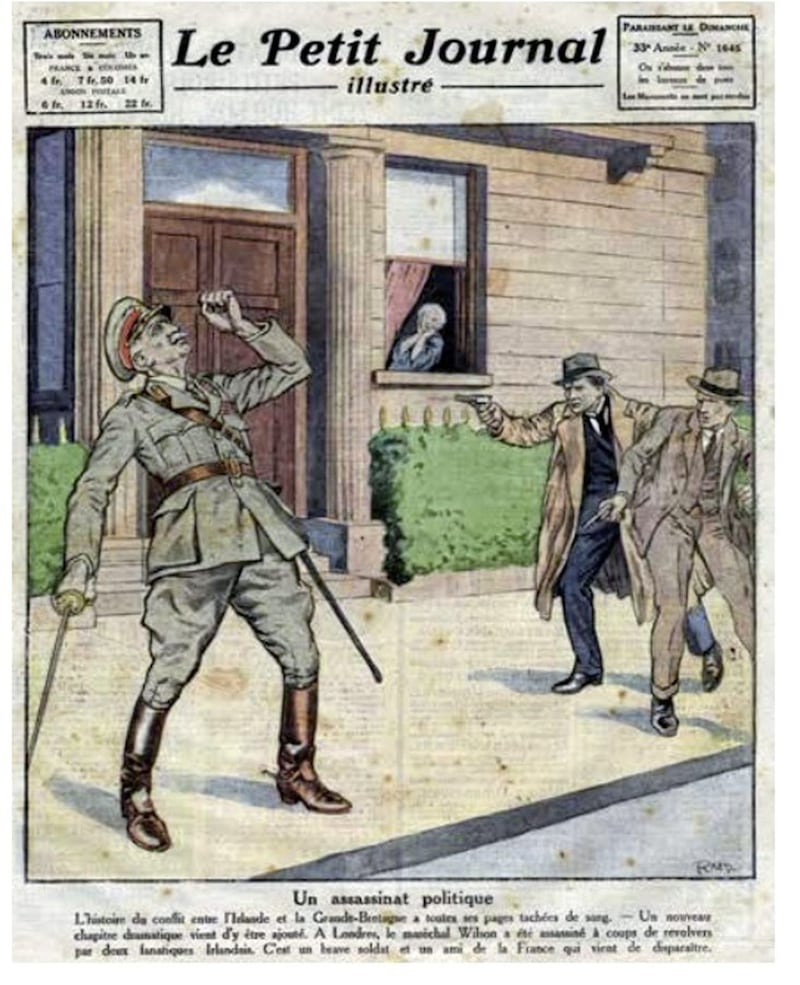
In their posthumous justification published two days after they were hanged on August 10 1922, Dunne and O'Sullivan wrote that Wilson was remembered in Ireland "not so much as the great British Field Marshal, but as the man behind what is known in Ireland as the Orange Terror".
Wilson's death changed the course of Irish history. The killing of Wilson was of a piece with Collins determination on one level to support the Treaty and the other to undermine the northern state at every opportunity.
Two months to the day after Wilson was assassinated, Michael Collins was killed at Béal na Bláth. His death removed from the scene the one Irish politician who was prepared to do more than pay lip service to the reality of partition.
Ronan McGreevy's book Great Hatred: The Assassination of Field Marshal Sir Henry Wilson MP is published by Faber & Faber priced £20.
